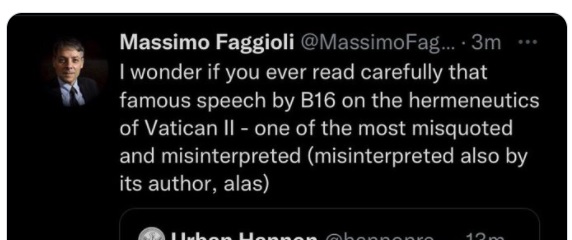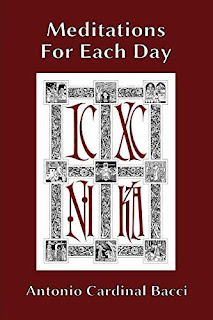Unfortunately, many of our Bishops seem to have forgotten this during the pandemic, putting saving lives above saving souls. May God have mercy on them for their dereliction of duty.
From Catholic Stand
By J.a.c. Man
Over the last two years, all of us witnessed politicians trying to out-do each other with respect to safety. Keeping everyone safe from a microscopic bug suddenly became Job One.
Many times we’ve heard, “If these measures save just one life, they will be worth it” or something to that effect. In many cases, this argument was used to justify the closing of church buildings and force the cancellation of Mass. Was this reasonable?
If you apply the “save just one life” logic to other situations, stairs should be replaced with ramps and ladders should be banned outright. Natural gas should also be banned because of all the fatalities each year, both from asphyxiation and explosions. People also drown in bathtubs. Should tubs be banned as well?
Fundamental Fallacy
After enacting different levels of control throughout the world from complete lockdowns in Australia to none in Sweden, how many people were saved? Ultimately, the answer is zero. Everyone is going to die.
The fundamental fact of death is overlooked by many in today’s modern world. I believe this is partially due to the massive improvements in medicine realized in the last 200 years.
Today, children in the United States overwhelmingly survive childhood. In 2020, just 7 out of 1,000 children died before age five. (This number does not include babies who were legally murdered through abortions. The number jumps to approximately 110 when abortions are counted.) This is drastically lower than the 185 out of 1,000 who died before age five in 1920. And the number was 456 out of 1,000 in 1820. That is over 45% of children dying before they reach the age of five.
Overall life expectancy in the United States has risen dramatically from 54 years of age in 1920 to 79 in 2020. In this modern world, we are blessed with long lives.
Procrastination
When one lives in a world in which nearly 1 out 5 children die before they are five years old, one is well aware that death is continually present. And if death is constantly present, one is more apt to prepare for it both mentally and spiritually.
However, people in today’s modern world seem to procrastinate, as there seems to be plenty of time to get one’s life and soul in order. That is, until some terrible event takes place.
I remember when Catholics packed Masses after the September 11 World Trade Center attack. Suddenly people were afraid and worshiping God and thanking Him for His blessings was important.
Unfortunately, the most recent event was different. Over the last two years, people were afraid to go to Mass. Going to Kroger or Walmart was essential and safe. But even once churches opened back up, celebrating the Eucharist was superfluous and risky.
Parable of the Talents
In the Gospel of Matthew, one finds the parable of the Talents (Mathew 25:14-30). Most people probably know the parable, but here’s a very short recap.
A man gave three of his servants talents and went on a journey. Two servants made investments and doubled the number of talents they were given. One servant buried his talent. He hid his master’s money out of fear. Upon his return, the master celebrated the work of his 2 faithful servants and scorned the servant who buried the money.
Dig Up Your Talents and Invest in Saving Souls
I would argue that many Catholics buried their talents over the last 2 years. Dig them up.
Catholics should not have so easily abandoned the Sacraments in the name of safety, especially when Catholics needed them the most. The Sacraments are an essential investment in our souls.
Investments in souls do not always require priests, however. I would argue that a lay person talking to someone one-on-one can be just as effective as any 15-minute sermon during mass. It is more personal.
Prepare for Death
Since death is coming, one should always be prepared for it, both emotionally and spiritually. After all, we never know when death will come for each of us.
Death is not a discussion one can have with a grieving family. This is something that one needs to talk about before one is sick or dying. If one procrastinates until that point, emotions will be too high. And preparations do need to be made spiritually for oneself – and for the living left behind.
Now is the time to talk to family members and prepare them. Let them know your wishes regarding prolonging life and treatments. In today’s world, that includes giving someone power of attorney if you are incapacitated. Perhaps this includes planning your own funeral. If you can, you should prepare your family spiritually as well.
Catholics also know that there is life everlasting. We must make a concerted effort to pass our particular judgment, to be cleansed, and to reach paradise.
Now is the time to prepare for judgment, to get one’s spiritual life in order. We should go to Mass on Sunday, and go to Confession regularly. Now is the time to make amends and work to avoid sin.
Live
Preparation for death also involves living. It is easy to be like the servant who buried his talents. It is easy to be afraid and bury oneself, avoiding any interaction or possible threat. That is not what Catholics are called to do.
To quote Saint Pope John Paul II, “Be not afraid.” While on this earth, one should live life like the servants who doubled their master’s talents. There will be risks. There will be threats. And there will be suffering. However, there will also be joy, delight, and blessings.
We should use the talents God has given us.










